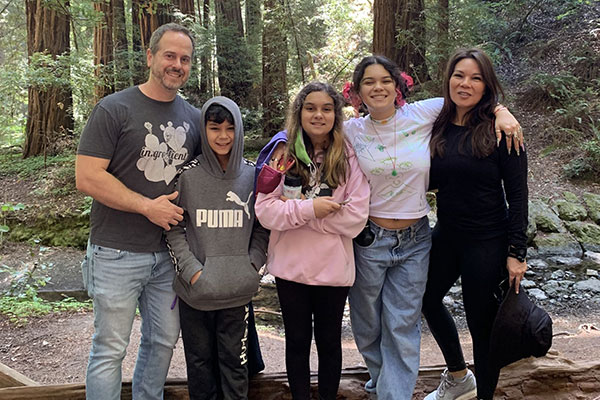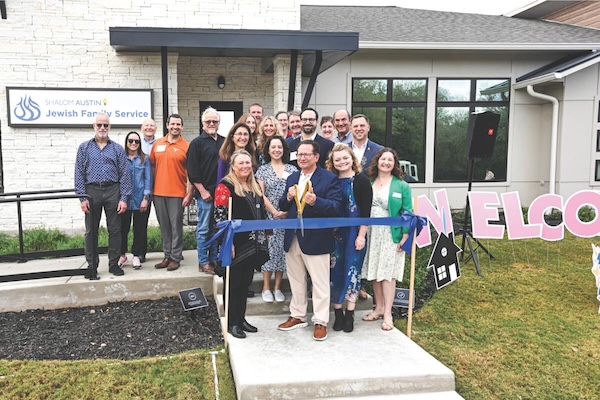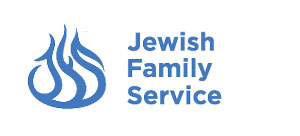
Shalom Austin’s Generous Grant Fuels New Mental Health and Disability Loan Program
Goodman Family of five from left to right: Greg, Ezra, Meadow (z”l), Eden, and Lulu. Courtesy: Greg Goodman
By Debbie Cohen
(CONTENT ADVISORY – Mentions of suicide.)
In an extraordinary act of community support, Shalom Austin has provided a generous grant to fund a new type of interest-free loan offered by the Hebrew Free Loan of Austin (HFLA). This loan program, aimed at assisting individuals with mental health, inclusion, and disability needs, offers up to $10,000 in interest-free loans to cover costs of counseling, therapy sessions, medical expenses, educational support, essential mobility equipment and much more.
This initiative will assist many families facing similar challenges as Greg Goodman and his family experienced last year. Last fall, Goodman’s daughter, Meadow, tragically died by suicide after battling a depressive disorder for over a year. Meadow’s diagnosis and subsequent treatments left the Goodman family with overwhelming medical bills and debt.
“Since her diagnosis and through the present day, my family has been dealing with major medical-related bills, and I have been saddled with a great deal of debt, which I’ve reached the limits of,” shared Goodman. The medical bills covering Meadow’s hospitalizations and treatment programs were exorbitant along with the high cost of ongoing therapy and mental health support to help Goodman’s family deal with their loss.
The emotional toll on the Goodman family was immense, making everyday decisions incredibly challenging. HFLA’s new loan program aims to alleviate some of the financial stress faced by families like the Goodmans. Goodman emphasized the importance of reaching out for help, despite the pride many individuals feel. “I’m a proud individual; my family is proud. I have been advocating for mental health awareness and to dispel the stigma behind suicide. I want to be able to make sure that no one is too proud to be able to reach out for help. There are plenty of people within and outside our community that need help. HFLA was there for my family, and I want to emphasize that,” Goodman said.
The new HFLA loan program providing mental health, disability, and inclusion help provides up to $10,000 in interest-free financial assistance, supported by Shalom Austin’s strategic initiatives, is now available to the community. It underscores the importance of providing financial assistance to those in need, ensuring equitable access to mental health care, education, and essential resources for individuals with disabilities. Through this initiative, HFLA and Shalom Austin are making a significant impact on the lives of individuals and families, fostering a supportive and inclusive community.
Latest Posts

Shalom Austin Jewish Family Service Opens New Doors to Serve the Community
Krasoff Jewish Family Service Building Ribbon Cutting ceremony. Front to back, left to right: Molly Krasoff, Steve Krasoff, Amanda Krasoff, Rabbi Amy B. Cohen, Janet S. Elam, Heather Krol, Ari Franklin, Rabbi Daniel A. Septimus, Steve McDaniel, Nancy Shapiro, Beth...

Over 450 Austinites Unite at Annual Breakfast for Israel
Event Co-chairs and Jewish National Fund-USA Austin Board with Keynote Speaker Avi Melamed (back row, middle) Credit: Andrew Holmes On October 9, 2024, just two days after the first anniversary of the horrific terrorist attacks in southern Israel, over 450 Austin...

In Times of Darkness, Together We Can be the Light
As I write this column, I am currently at The General Assembly of Jewish Federations of North America with fifteen other volunteer and professional leaders of our community. It is at conferences such as The General Assembly where I always walk away feeling...




HEALTH & WELLNESS
Fitness
Swimming
Tennis & Pickleball
Sports
EDUCATION
Jewish Culture & Education
Early Childhood Program Preschool
After School & Childcare
Camps
ARTS & CULTURE
Literary Arts
Visual Arts
Theatre & Film
Dance
COUNSELING & SUPPORT
Jewish Family Service
Counseling & Groups
Case Management
References & Resources
Copyright Shalom Austin 2025. Privacy Policy.
